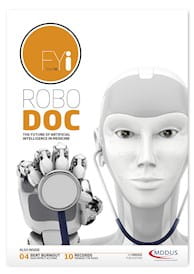CONSIDER the following scenario: A child is admitted to the emergency department with suspected chickenpox. One of the doctors becomes concerned that the child is developing life-threatening complications. He shares his concern with a senior doctor, but his senior tells him to send the child home. The child dies later that night due to varicella complicated by necrotising fasciitis.
Much has been researched about the part which ‘authority gradients’ can play in errors, but how well is it really understood and applied in healthcare situations? The term was first defined in aviation where it was observed that pilots and co-pilots may not communicate effectively in stressful situations and where there is a significant difference in experience, perceived expertise or authority (Cosby et al, ACAD EMERG MED 2004).
The Institute of Medicine’s report from 1999, To err is human, first explored the concept in the practice of medicine. Yet relatively little to date has been published regarding the potential role of authority gradients in medical errors, which may remain unrecognised.
In any organisation with different levels of professional stature and seniority, authority gradients can be intrusive – especially when senior staff have influence over career progression in those being supervised. This can make it extremely difficult to speak up and challenge the decisions of people in positions of power or authority.
Some organisations recognise these risks and seek to maintain what is known as a ‘shallow authority gradient,’ whereby everyone is actively encouraged to contribute opinions/ suggestions and an overall consensus emerges which is then acted upon. This can be a desirable approach for managing more routine, non-critical decision processes where there is the luxury of time. The downside to a shallow authority gradient is that in times of stress or crisis, where leadership and decisiveness are required, critical decisions may not be taken promptly, with adverse consequences resulting from delay.
Conversely, others in a senior position may opt for a ‘steep authority gradient’ where they are seen as the decision makers and expect instructions to be acted on without question or further discussion. This may be advantageous in times of crisis but it does not serve to foster shared responsibility and decision-making, nor empower junior colleagues to speak up and speak out to challenge flawed decisions.
In reality, the recognition and use of authority gradients are specific to situational awareness, which requires those in positions of authority to demonstrate self-awareness and be prepared to adjust their preferred gradient approach to meet the prevailing conditions and threats.
One high-profile medical error case where authority gradients played a major role involved a junior hospital doctor administering intrathecal vincristine to a patient instead of the safe indicated intravenous route. Despite this being against the junior doctor’s own judgement, he allowed himself to be pressurised by a more senior colleague into doing so. After repeated questioning of his superior he eventually accepted the reassurances given and administered the drug, which subsequently led to the slow and agonising death of the patient.
The aforementioned Institute of Medicine report on medical error acknowledged the importance of team working and the need to improve communication between care givers. Openness should be viewed as a positive attribute to minimise medical errors and poor decision making.
The scope of potential approaches in the management of situational awareness is too vast to do it justice in this article, however one element which should be fostered is the active encouragement of all team members to speak up and challenge decisions without fear of recrimination. A simple but effective start in developing the required skills could be the agreement of key alert phrases that can be employed by any member of the team to communicate escalating threats.
This could commence with a lower level statement such as “I can see a potential problem here” progressing onto more active statements, such as “I’m worried”, and in extreme situations, a direct challenge such as “something is wrong, you need to stop what you are doing / see this patient now!” Adopting this approach has been shown in the aviation environment to assist both the junior and senior officer in distinguishing between curiosity, concern and real threat, resulting in saved lives.
As trainees, it can be difficult to initiate big changes in your working environment, but it is worth taking a step back and considering the authority gradients in your hospital. Are relationships within the team affecting situational awareness (e.g. are people afraid to share their views or perspectives leading to poor decisions/actions)?
Talk to colleagues to gather their views and then consider raising any issues with your trainer or other senior colleague. Also, you can contact MDDUS to discuss the matter with a medical adviser.
Alan Frame is a risk adviser at MDDUS
This page was correct at the time of publication. Any guidance is intended as general guidance for members only. If you are a member and need specific advice relating to your own circumstances, please contact one of our advisers.
Read more from this issue of FYi

Save this article
Save this article to a list of favourite articles which members can access in their account.
Save to library
